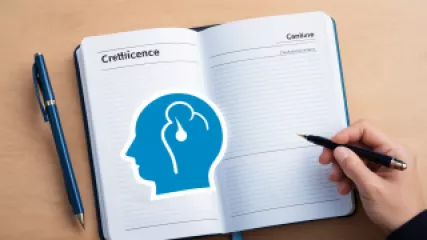10 Best Ways to Handle Criticism with Resilience
10 Best Ways to Handle Criticism with Resilience
Criticism, whether constructive or harsh, can be a challenging experience for many of us. It's natural to feel defensive or hurt when someone points out our flaws or shortcomings. However, the ability to handle criticism with resilience is a valuable skill that can help us grow, improve, and maintain our emotional well-being. In this comprehensive guide, we'll explore 10 effective strategies to manage criticism and develop the emotional resilience needed to navigate these challenging situations.
1. Separate Fact from Fiction
When faced with criticism, it's essential to distinguish between factual feedback and subjective opinions. Take a moment to reflect on the criticism and ask yourself: Is this a valid observation, or is it just someone's personal bias or perspective? Separating fact from fiction can help you identify the constructive elements of the feedback and disregard any unfair or unreasonable criticism.
2. Practice Active Listening
Rather than immediately becoming defensive, try to approach criticism with an open mind and a willingness to listen. Active listening involves focusing on what the other person is saying, asking clarifying questions, and seeking to understand their perspective. This approach can help you gain valuable insights and demonstrate your commitment to personal growth.
3. Cultivate Emotional Awareness
Criticism can elicit strong emotional reactions, such as anger, hurt, or embarrassment. Acknowledging and accepting these feelings is an important step in the process. Take a moment to pause, reflect on your emotional state, and then decide how to respond in a constructive manner. Emotional awareness can help you regulate your reactions and prevent impulsive or defensive behavior.
4. Seek Constructive Feedback
While unsolicited criticism can be challenging to receive, actively seeking out feedback from trusted sources can be incredibly valuable. Ask for specific, constructive feedback from colleagues, mentors, or loved ones who have your best interests in mind. This approach can help you identify areas for improvement and develop a growth mindset.
5. Reframe Your Perspective
When faced with criticism, it's easy to fall into the trap of seeing it as a personal attack. Instead, try to reframe your perspective and view criticism as an opportunity for growth and improvement. Approach it as a chance to learn, adapt, and become a better version of yourself.
6. Develop a Support System
Navigating criticism can be easier when you have a supportive network of friends, family, or colleagues who can provide a listening ear and words of encouragement. Surround yourself with people who genuinely care about your well-being and can help you maintain a healthy, balanced perspective.
7. Practice Self-Compassion
It's important to remember that no one is perfect, and criticism is a natural part of life. Treating yourself with kindness and understanding can help mitigate the negative impact of criticism and foster a greater sense of self-acceptance.
8. Focus on What You Can Control
In the face of criticism, it's easy to become consumed by factors that are outside of our control. Instead, shift your focus to the aspects of the situation that you can influence, such as your own reactions, actions, and personal growth. This can help you maintain a sense of agency and prevent feeling powerless.
9. Seek Professional Support
If you find that criticism is significantly impacting your mental health or emotional well-being, it may be beneficial to seek professional support. A therapist or counselor can provide valuable guidance and tools to help you develop resilience and improve your ability to handle criticism effectively.
10. Celebrate Small Victories
As you work on building your resilience, it's important to acknowledge and celebrate your progress, no matter how small. Take time to recognize the steps you've taken to manage criticism and continue to grow. This positive reinforcement can help bolster your confidence and strengthen your ability to handle future challenges.
Criticism is an inevitable part of life, but with the right strategies and a commitment to personal growth, you can develop the emotional resilience needed to handle it effectively. By separating fact from fiction, practicing active listening, cultivating emotional awareness, and reframing your perspective, you can transform criticism into an opportunity for self-improvement and personal development. Remember, the journey to resilience is a continuous one, and by embracing these 10 strategies, you can navigate the challenges of criticism with grace and confidence.






